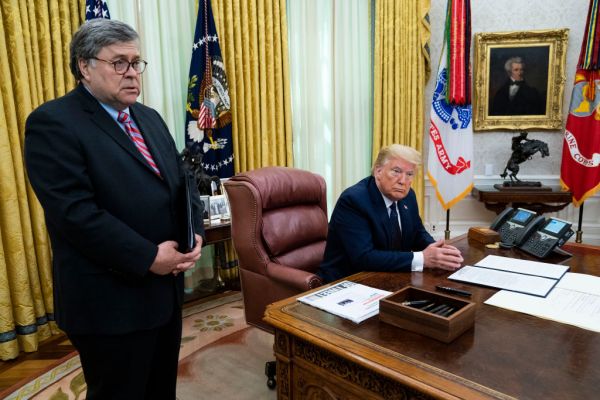On Thursday, President Trump signed an executive order taking aim at the legal shield that internet companies rely on to protect them from liability for user-created content. That law, known as Section 230 of the Communications Decency Act is essential to large social platforms like Twitter, YouTube and Facebook, the kind of companies the president has long accused, without evidence, of engaging in anti-conservative censorship.
Trump was joined during the signing by Attorney General William Barr, who has previously expressed interest in stripping away or limiting the same legal protections. During the signing, Trump claimed that social media companies have “unchecked power” influenced by their “points of view.” Earlier in the day the president tweeted “This will be a Big Day for Social Media and FAIRNESS!”
On Tuesday, Twitter added warning labels to two tweets from the president that made false claims about vote-by-mail systems. The labels, which did not hide the tweets or even actually outright call them false, pointed users toward a fact-checking page. The move enraged the president, who lashed out at the company through tweets, specifically targeting Yoel Roth, Twitter’s head of site integrity.
The executive order is not yet published, but we examined a draft of it previously that’s likely to bear a close resemblance to the finished copy. Civil rights groups and internet freedom watchdogs denounced the order Thursday, with the co-creator of the law in Trump’s crosshairs dismissing his actions as “plainly illegal.”
This story is developing
